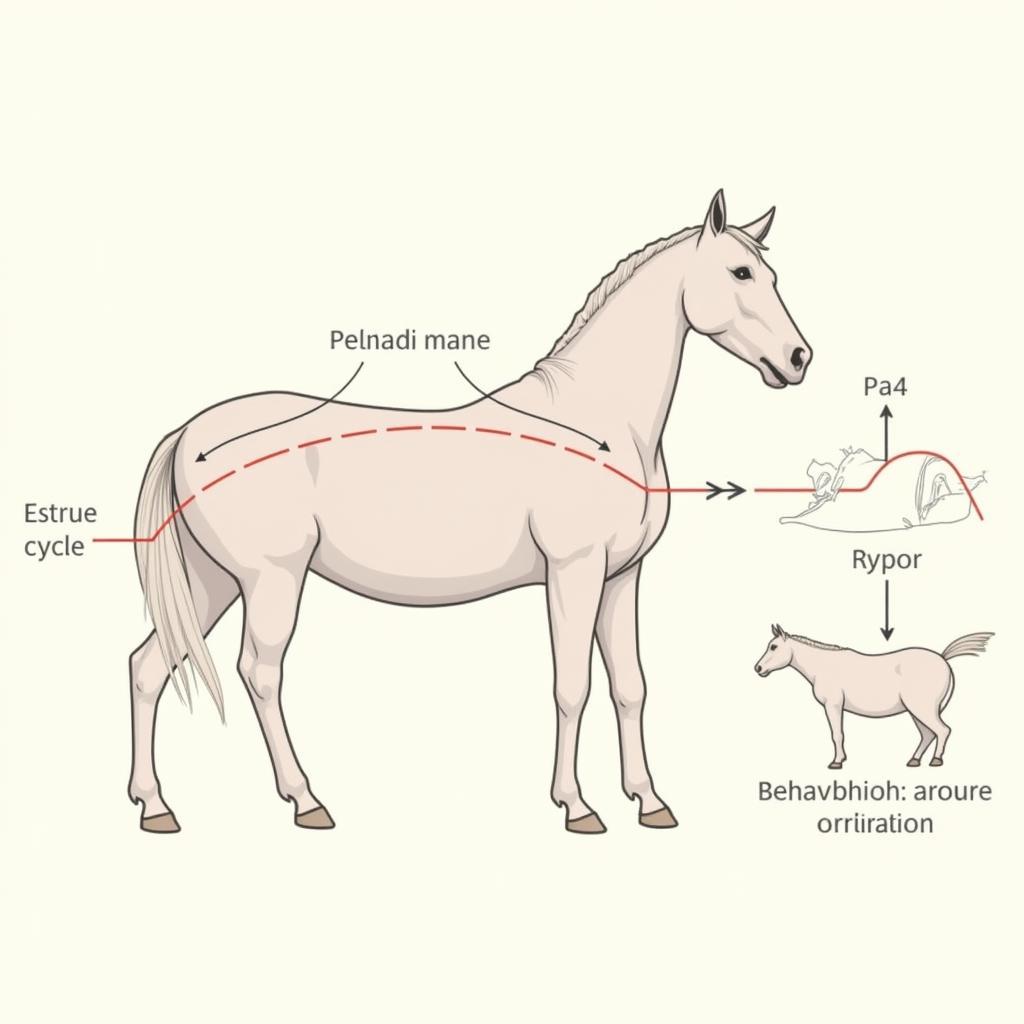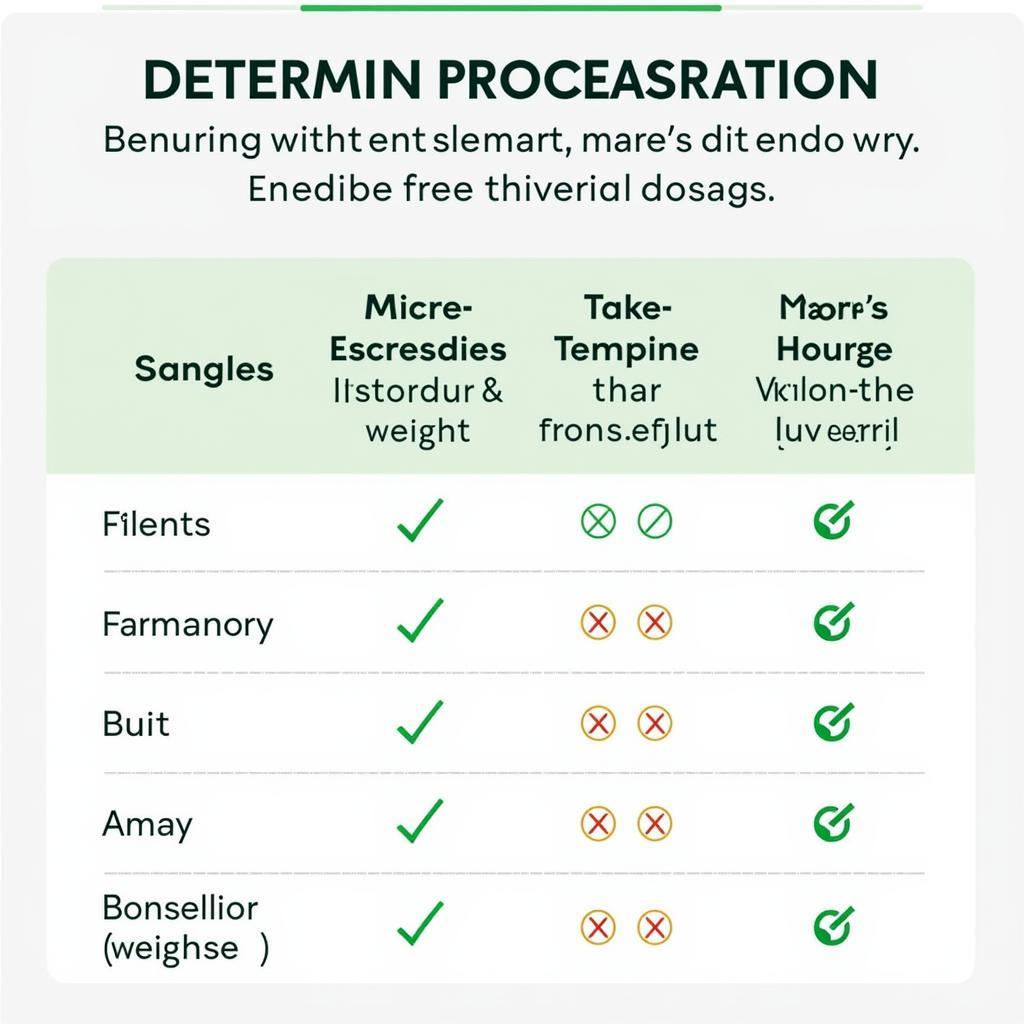Estradiol in horses is a naturally occurring hormone, but its synthetic version is also used in veterinary medicine. Understanding its role, both natural and therapeutic, is crucial for responsible horse ownership. This article will delve into the various aspects of estradiol use in horses, including its benefits, risks, and important considerations.
Understanding Estradiol in Horses
Estradiol is the primary estrogen in mares. It plays a vital role in the mare’s reproductive cycle, influencing estrus behavior, and preparing the uterus for pregnancy. Natural estradiol levels fluctuate throughout the estrous cycle, peaking just before ovulation. Synthetic estradiol is used therapeutically for various conditions, primarily reproductive issues.
The Role of Natural Estradiol
In a healthy mare, estradiol orchestrates a complex series of events that prepare the body for reproduction. It’s responsible for the physical and behavioral signs of estrus, also known as “heat.” These signs include increased vocalization, tail raising, frequent urination, and receptiveness to the stallion.  Natural Estradiol in Mares Estradiol also stimulates the growth and development of the uterine lining, creating a hospitable environment for a fertilized egg.
Natural Estradiol in Mares Estradiol also stimulates the growth and development of the uterine lining, creating a hospitable environment for a fertilized egg.
Therapeutic Uses of Synthetic Estradiol
Synthetic estradiol is administered to mares for a variety of reasons. It can be used to induce estrus in mares with irregular cycles or those that are not cycling at all. It is also used to treat certain reproductive disorders, such as anestrus and persistent corpus luteum. Furthermore, estradiol can be used to help manage urinary incontinence in some mares.
Benefits and Risks of Estradiol in Horses
Like any medication, estradiol can have both beneficial and adverse effects. Understanding these is vital for making informed decisions about its use.
Benefits of Estradiol Therapy
- Estrus Induction: Estradiol can effectively bring mares into heat, allowing for breeding management and timed artificial insemination.
- Treatment of Reproductive Disorders: It can help resolve certain reproductive problems, increasing the chances of successful pregnancy.
- Management of Urinary Incontinence: In some cases, estradiol can improve bladder control in mares.
Risks of Estradiol Therapy
- Behavioral Changes: Excessive estradiol can lead to exaggerated estrus behavior, making mares difficult to handle.
- Over-stimulation of the Reproductive Tract: High doses or prolonged use can cause inflammation and other issues in the uterus.
- Bone Marrow Suppression: In rare cases, long-term estradiol use can lead to bone marrow suppression, affecting blood cell production.
“Estradiol is a powerful tool, but it’s essential to use it judiciously. Overuse or improper administration can have detrimental effects on a mare’s health,” advises Dr. Emily Carter, DVM, specializing in equine reproduction at Justus Horses USA.
Administering Estradiol to Horses
Estradiol is typically administered via intramuscular injection. The dosage and frequency depend on the specific condition being treated and the individual mare. It’s crucial to follow a veterinarian’s instructions carefully. Never administer estradiol without veterinary guidance.  Estradiol Injection Dosage
Estradiol Injection Dosage
“Always consult with your veterinarian before administering any medication, including estradiol. They can assess your mare’s specific needs and determine the appropriate dosage and treatment plan,” adds Dr. Sarah Miller, DVM, another equine reproduction specialist at Justus Horses USA.
Conclusion
Estradiol plays a crucial role in equine reproduction, both naturally and therapeutically. While it can be beneficial in managing various reproductive and urinary conditions, it’s important to be aware of the potential risks. Careful monitoring and veterinary guidance are essential for safe and effective use. Understanding Estradiol For Horses is a crucial part of responsible horse ownership.
FAQs
- What are the common signs of estrus in mares?
- How is estradiol administered to horses?
- What are the potential side effects of estradiol in mares?
- Can estradiol be used in pregnant mares?
- How long does it take for estradiol to induce estrus?
- What are the alternatives to estradiol therapy?
- How often should estradiol levels be monitored in mares undergoing treatment?
For any assistance, please contact us at Phone Number: 0772127271, Email: [email protected] or visit us at QGM2+WX2, Vị Trung, Vị Thuỷ, Hậu Giang, Việt Nam. We have a 24/7 customer support team.